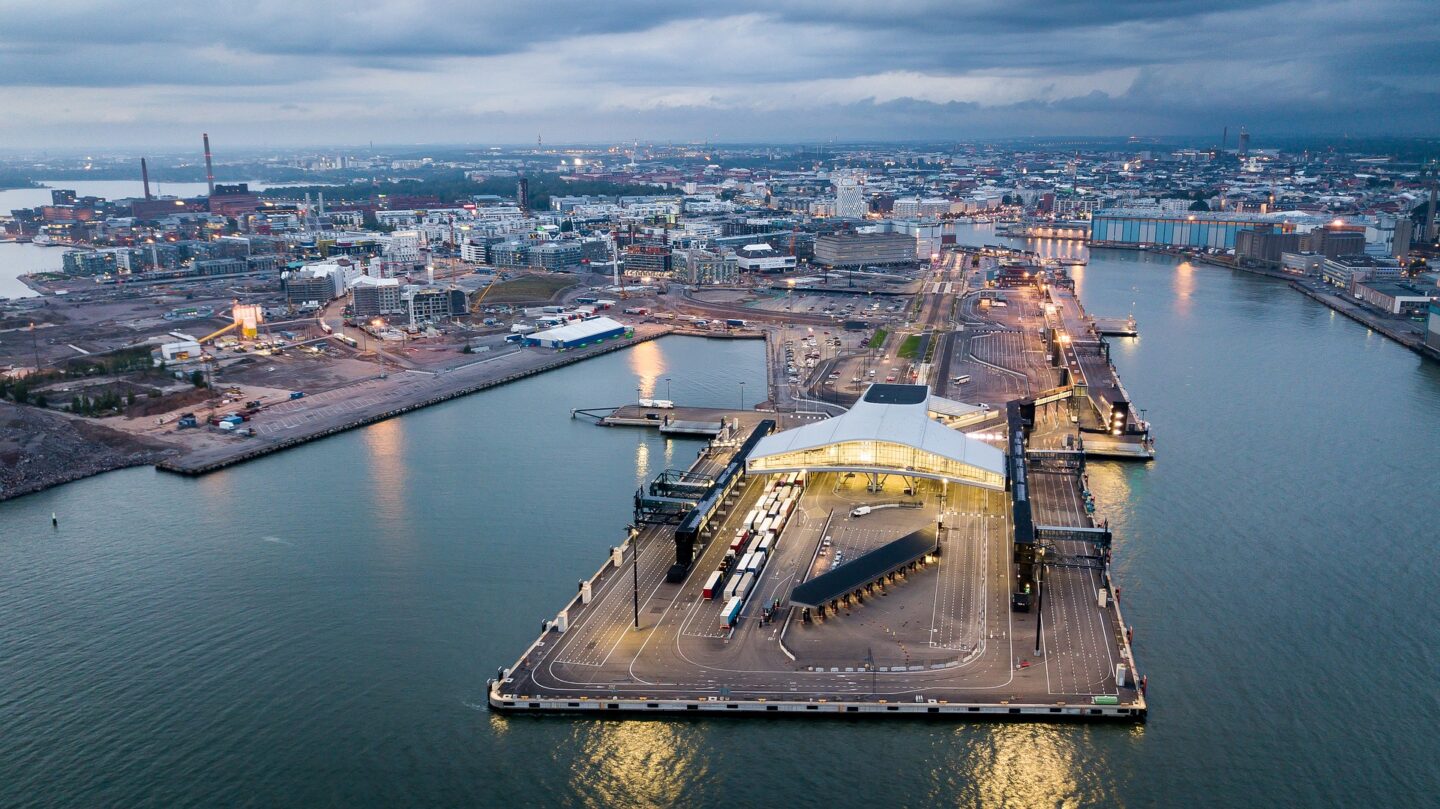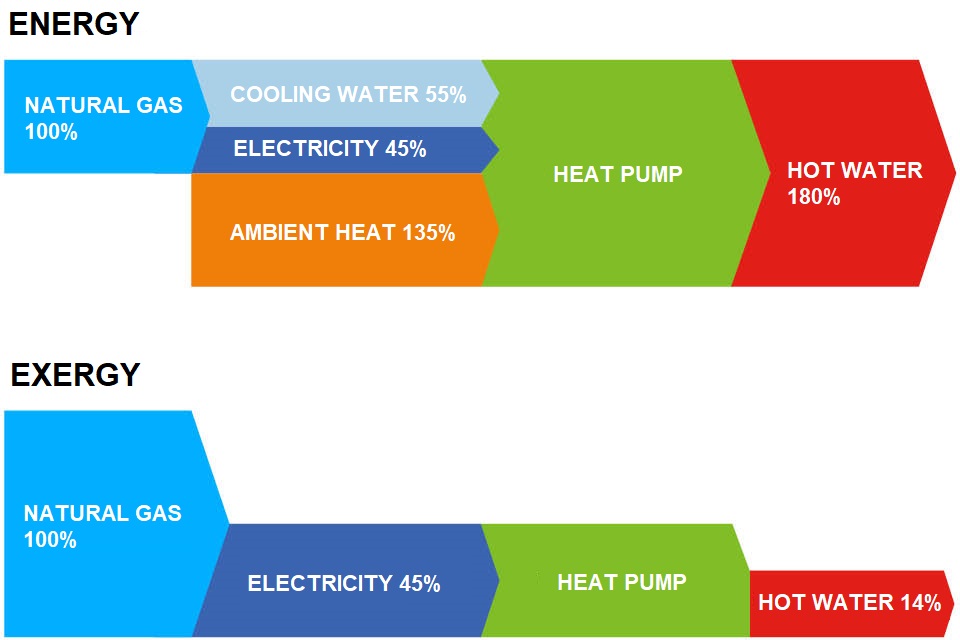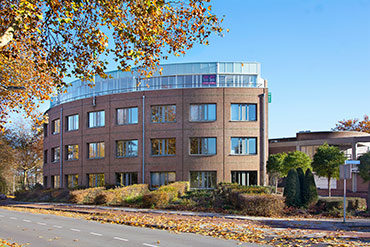What is exergy?
Energy is never lost according to the first law of thermodynamics. Yet something is lost in energy conversions. This is the quality of energy. To discribe this the concept of exergy was created.
Exergy indicates how much labor can be maximally obtained from an energy or material flow. Another word for exergy is therefore labourpower. For pure mechanical energy (for example that of a rotating wheel) the exergy is equal to the energy. For heat, the exergy is equal to a part of the energy in the form of heat. This part depends on the temperature difference with the surrounding environment. The larger the temperature difference, the more exergy a heat flow with the same amount of energy contains.
Although exergy is already a relatively old concept dating back to 1956, it is still barely applied. The schematic below shows very clearly where wastage (loss of exergy or energy quality) occurs.
The schematic shows that exergy gives a different view of the efficiency of the high-efficiency boiler. 92% of the exergy is lost! This is an unneccesary result according to the theory. The question is whether there is also a practical manner to heat with a higher exergetic efficiency. Which there is, in fact there are multiple practical solutions. One example is an electric heat pump. The following schematic shows the efficiency of the entire chain starting at the power plant. The exergetic return has almost doubled. Since the exergy of the environment is zero, it is not visible in the exergy overview.
The application of exergy in the industry
A production company strives for the most efficient and effective production. Central to the production process is a low cost production price with minimal product loss. A different manner in which to analyse the production process is that of the exergy-based screening. This approach can generate major financial savings. In such a screening, the combustion and raw material use of the production process are examined.
The following questions can be posed:
- How are the fuels and raw materials used?
- How are these converted to products?
- Where do the losses of the raw materials occur?
- What are the energy and exergy costs per product for the production of multiple products within one process?
- How can a more efficient use of the fire and raw materials be realized?
An exergy analysis of CCS Energie-advies can answer all of these questions for you.
The approach
First, the exergetic value in the production process is made transparent based on a mass and energy balance. We look at where exergy losses, loss of combustion and raw materials occur. An exergy analysis can be performed at different levels. At the level of a full production process, where the exergy loss is determined per production step, but also at the level of one production step. Even up to the level of, for example, a compressor within a production step.
The next step is, partly based on the design rules for minimal exergy losses, the drafting of measures to reduce these losses. These measures can focus on the short term, but also on long-term solutions. By determining energy and exergy costs per product, an exergy analysis is also very useful for process developers. We elaborate these measures into business cases, showing the most favorable recouping time of the most suitable measures.
Wat can CCS do for you?
CCS Energie-advies is one of the leading consultancy firms in the Netherlands when it comes to exergy. With an exergy analysis, CCS can screen your industrial process in a relatively short time and indicate specific saving measures.
For more information please contact Rene Cornelissen via +31 (0)570-667000 or cornelissen@cocos.nl
Also, please take note of René’s published research articles on exergy at www.researchgate.net/profile/R_Cornelissen.



